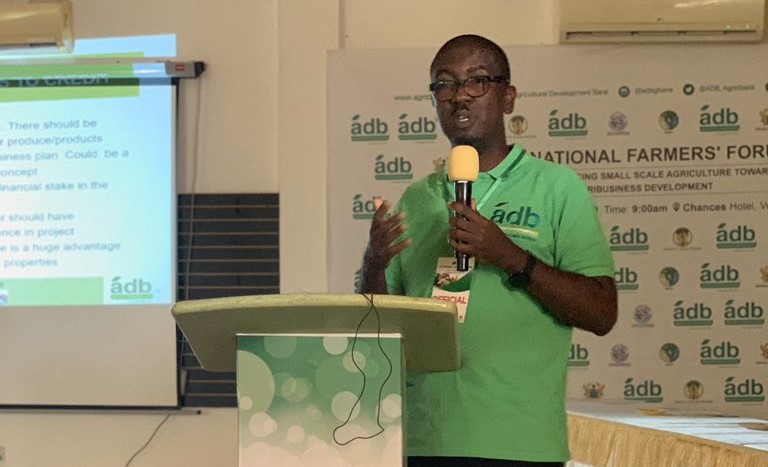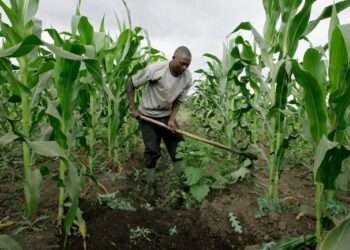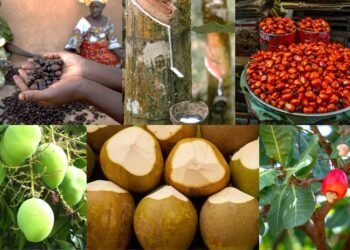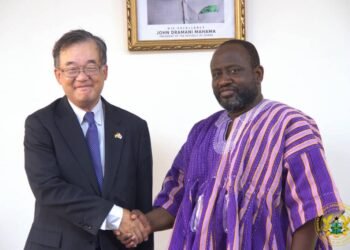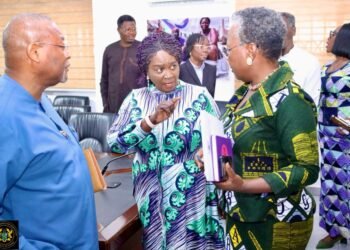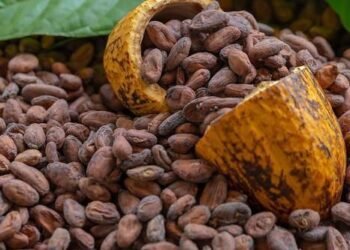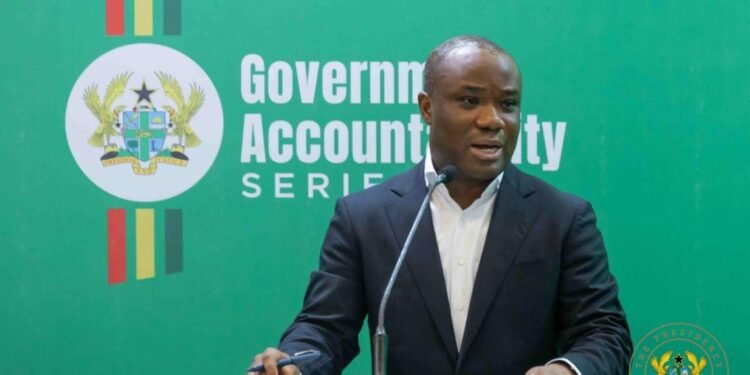The Agricultural Development Bank (ADB) has debunked claims that it is transitioning into real estate development. According to the General Manager for Agribusiness at the Bank, Kwame Asiedu Attrams, the bank has invested about GHC600 million in the Agric sector.
His comments follow allegations from some farmers that, ADB along with some other banks are unwilling to grant them loans. These farmers, allege that, they not being in the real estate sector hampers the possibilities of securing loans from the bank.
Reacting to this, Mr. Attrams noted that, claims that the bank is shifting to real estate development are untrue.
“It is most pathetic to hear that a farmer will claim that the Agricultural Development Bank would deny him credit; and indicate to him that if he were into real estate, he will stand a better chance of financing. That, I daresay, is a palpable falsity. It isn’t true. It isn’t true because, yes ADB is a universal bank and therefore, we do everything banking, finance, [for] all players within all the sectors.
“However, it’s a universal bank with an agricultural focus and therefore our priority areas are into the agric value chains”.
Accessing loans for farmers
Meanwhile, GIRSAL, has instructed farmers to acquire basic knowledge on loans they apply for.
Takyi Sraha, a senior agribusiness specialist at GIRSAL, intimated that, farmers go with unrealistic proposals to bank. As a result, this makes it difficult for the banks to support them.
“They have to understand the requirements of the bank, because some of these challenges of farmers not accessing credit; normally is due to the fact that, the farmers who are on the demand side also don’t understand the requirement of these financial institutions. As a result, they send proposals that are not able to meet the requirement of these financial institutions”.
The Ministry of Food and Agriculture in April, revealed that some 90,000 smallholder farmers have received investment. According to the ministry, the investment from government has been going on for the past two year.
The ministry revealed that the programme is a government initiative designed to provide a framework for a long-term financing engagement for private led, pro-poor agricultural value chain development in Ghana.
Agric farmers receive investment
The National Programme Coordinator, Klutse Kudomor, explained that, the switch in management for the programme has increased the implementation status from 12% in 2015 to 78% in 2019.
Additionally, Mr. Kudomor stated that the farmers benefited directly from production inputs and were trained in good agricultural practices. He went on to highlight some benefits enjoyed indirectly.
The National Programme Coordinator, Klutse Kudomor indicated that the switch in management for the programme has increased the implementation status from 12% in 2015 to 78% in 2019.
The World Bank Board of Executive Directors in October 2020, also approved US$250 million from the International Development Association (IDA). The fund was to support the establishment of the National Development Bank.
Similarly, the move was to help increase access to long term finance. Also, it was intended to boost job creation for 10,000 enterprises in key sectors including agribusinesses.
According to Pierre Laporte, World Bank Country Director for Ghana, financing and credit guarantees will help increase overall lending to priority sectors and market segments.
Read Also: India PM calls for precautions as coronavirus spreads fast to rural areas

